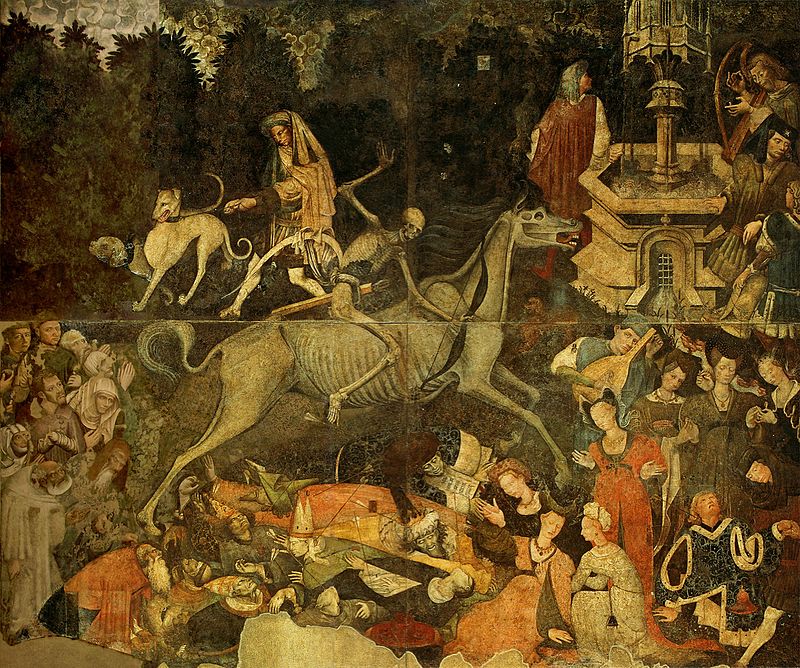
Spiritual Sunday
As the world grapples with the rapid spread of the coronavirus, I share a poem written during a 16th century London plague. Such plagues regularly swept through London, and a later one may actually have carried off the author Thomas Nashe, who died at 34.
In “Litany in Time of Plague,” Nashe at first takes a stoic attitude towards death, observing that “this world uncertain is” and that “life’s lustful joys” are “but toys.” He’s almost matter of fact when he writes, “Beauty is but a flower/ Which wrinkles will devour.” Helen of Troy and Hector, the most beautiful of women and the most valiant of warriors, both end up as food for worms.
The poem also offers us the Christian consolation: “Heaven is our heritage,/ Earth but a player’s stage.”
Yet however consoling these sentiments, by ending each stanza with “I am sick, I must die” and then a prayer (litany) to God, we see that no amount of stoic reasoning or even Christian reassurance can make our terror vanish. All we can do is hand our lives over to a greater power.
COVID-19 is not the Bubonic plague. It’s still a killer, however.
Litany in Time of Plague
By Thomas Nashe
Adieu, farewell, earth’s bliss;
This world uncertain is;
Fond are life’s lustful joys;
Death proves them all but toys;
None from his darts can fly;
I am sick, I must die.
Lord, have mercy on us!
Rich men, trust not in wealth,
Gold cannot buy you health;
Physic himself must fade.
All things to end are made,
The plague full swift goes by;
I am sick, I must die.
Lord, have mercy on us!
Beauty is but a flower
Which wrinkles will devour;
Brightness falls from the air;
Queens have died young and fair;
Dust hath closed Helen’s eye.
I am sick, I must die.
Lord, have mercy on us!
Strength stoops unto the grave,
Worms feed on Hector brave;
Swords may not fight with fate,
Earth still holds ope her gate.
‘Come, come!’ the bells do cry.
I am sick, I must die.
Lord, have mercy on us!
Wit with his wantonness
Tasteth death’s bitterness;
Hell’s executioner
Hath no ears for to hear
What vain art can reply.
I am sick, I must die.
Lord, have mercy on us!
Haste, therefore, each degree,
To welcome destiny;
Heaven is our heritage,
Earth but a player’s stage;
Mount we unto the sky.
I am sick, I must die.
Lord, have mercy on us!
A note on the painting: The fresco, by an unknown artist, was painted a century after the Black Plague. Too many Americans are like the people in the upper half of the picture, walking their dogs and congregating in social spaces, even as death rides its horse. It’s too late for those in the lower half, who have been caught unawares.
One other thought: In Monday’s post (see link below), I quoted Boccaccio observing people, during the Black Plague, carousing in bars. As I write this, bars are filled in Chicago, New York, and elsewhere with partiers celebrating St. Patrick’s Day. Some will be spreading the virus. Lord, have mercy on us.
Here’s the passage:
Others…carouse and make merry and go about singing and frolicking and satisfy the appetite in everything possible and laugh and scoff at whatsoever befell was a very certain remedy for such an ill. That which they said they put in practice as best they might, going about day and night, now to this tavern, now to that, drinking without stint or measure…
Previous posts on the coronavirus
Boccaccio: What to Do When Quarantined
Lady Macbeth: Hand Washing and the Coronavirus
Stephen King on How Pandemics Spread

